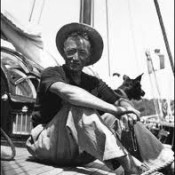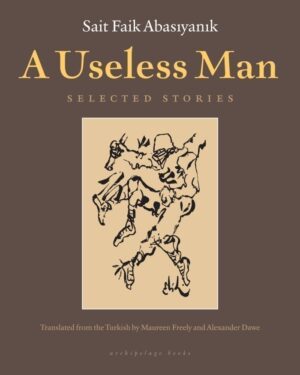Sait Faik Abasıyanık
 Sait Faik’s career marked a fascinating moment in Turkish culture in the 1930s and 40s when the secular, post-Ottoman sensibility placed new demands on the writing of literature. Turkish critics and readers regard him as their finest short story writer, a Turkish Chekhov. His writing is extraordinarily poetic: while Sait Faik was a talented poet, he preferred the mode of fiction, and his intuitive sense for poetry pervades his stories.
Like Chekhov, Sait Faik’s characters come to life on the page—we meet Armenian fishermen, Greek Orthodox priests, and the disillusioned and disenfranchised, their complicated emotions, thoughts, and conditions, without ever compromising the full range of their humanity. Oguzertem wrote of Sait Faik: “No characters remain ‘common’ or ‘ordinary’ once they enter Sait Faik’s stories; his piercing gaze and thoughtful vision transform them lovingly into unique beings.”
Sait Faik’s career marked a fascinating moment in Turkish culture in the 1930s and 40s when the secular, post-Ottoman sensibility placed new demands on the writing of literature. Turkish critics and readers regard him as their finest short story writer, a Turkish Chekhov. His writing is extraordinarily poetic: while Sait Faik was a talented poet, he preferred the mode of fiction, and his intuitive sense for poetry pervades his stories.
Like Chekhov, Sait Faik’s characters come to life on the page—we meet Armenian fishermen, Greek Orthodox priests, and the disillusioned and disenfranchised, their complicated emotions, thoughts, and conditions, without ever compromising the full range of their humanity. Oguzertem wrote of Sait Faik: “No characters remain ‘common’ or ‘ordinary’ once they enter Sait Faik’s stories; his piercing gaze and thoughtful vision transform them lovingly into unique beings.”
Showing the single result
Showing the single result

